
Bintang Merah (Indonesian: Red Star) was a magazine of the Communist Party of Indonesia which published in Jakarta from 1945 to 1948 and again from 1950 to 1965. It described itself as a magazine of Marxist-Leninist politics and theory.

Bintang Merah (Indonesian: Red Star) was a magazine of the Communist Party of Indonesia which published in Jakarta from 1945 to 1948 and again from 1950 to 1965. It described itself as a magazine of Marxist-Leninist politics and theory.
The magazine began publication at the end of the Second World War with the departure of Japanese forces from the Indonesia. However, it was banned in 1948 during the Madiun Affair along with other communist newspapers such as Buruh, Revolusioner, and Suara Ibu Kota. [1] With all the newspapers banned, Musso, the PKI leader, went on Radio Gelora Pemoeda and denounced the government of Sukarno and Mohammad Hatta, stating that they were following a policy of capitulation towards the Netherlands and that they had risen to power during the Japanese occupation of the Dutch East Indies with ties to Japan. [2]
In the early independence period, the political alignments in Indonesia shifted and the Communists became closer to Sukarno. In August 1950, the magazine was allowed to start publishing again twice per month. [3] The new editorial staff were D. N. Aidit, Lukman, Njoto and Peris Pardede. But they still faced occasional persecution; in August 1951 there were mass arrests of leftists of various parties in East Java, and editor (and PKI central committee member) B.O. Hutapea was among them, along with editors of Trompet Masjarakat, Republik and editors of a number of Chinese Indonesian papers. [4] This was after an earlier round of raids on Communists in East Java, which Hutapea had called a "politics of demoralization" being waged against them by the government. [5]
Bintang Merah claimed to have a circulation of 10,000 by the end of 1950 but gradually declined to under 8,000 in 1953. It was surpassed in circulation by another party paper, Harian Rakjat, which went from 2,000 circulation in 1951 to 15,000 in 1953. [6]
It is unclear for how long it ceased publication, but a report from early 1964 reports that Bintang Merah was once again allowed to resume publication. [7] However, it was permanently closed in 1965 with the banning of the Communist Party of Indonesia after the September 30 Movement. Most of the editors faced trials and became political prisoners or were executed. B.O. Hutapea escaped and lived in hiding for several years, being finally killed in a shootout with police in Blitar, East Java in 1968. [8]

Sukarno was an Indonesian statesman, orator, revolutionary, and nationalist who was the first president of Indonesia, serving from 1945 to 1967.

The Communist Party of Indonesia was a communist party in Indonesia. It was the largest non-ruling communist party in the world before its violent disbandment in 1965. The party had two million members in the 1955 elections, with 16 percent of the national vote and almost 30 percent of the vote in East Java. During most of the period immediately following the Indonesian Independence until the eradication of the PKI in 1965, it was a legal party operating openly in the country.
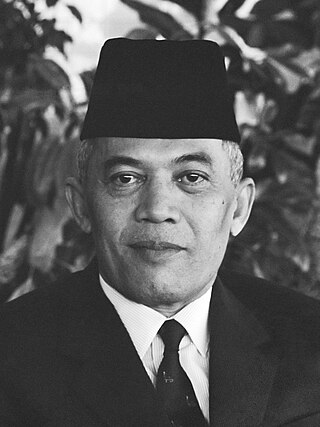
Abdul Haris Nasution was a high-ranking Indonesian general and politician. He served in the military during the Indonesian National Revolution and he remained in the military during subsequent turmoil of the Parliamentary democracy and Guided Democracy. Following the fall of President Sukarno from power, he became the Speaker of the People's Consultative Assembly under president Suharto. Born into a Batak Muslim family, in the village of Hutapungkut, Dutch East Indies, he studied teaching and enrolled at a military academy in Bandung.

Adam Malik Batubara was an Indonesian politician, diplomat, and journalist, who served as the 3rd Vice President of Indonesia from 1978 until 1983, under President Suharto. Previously, he served in a number of diplomatic and governmental positions, including Speaker of the People's Consultative Assembly from 1977 to 1978, Speaker of the People's Representative Council from 1977 to 1978, Foreign Minister of Indonesia from 1966 until 1977, and president of the United Nations General Assembly from 1971 until 1972.
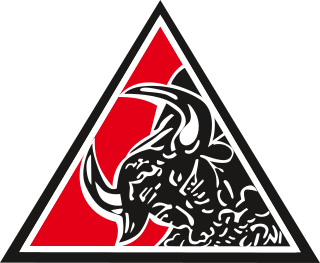
The Indonesian National Party was the name used by several nationalist political parties in Indonesia from 1927 until 1973. The first PNI was established by future President Sukarno. After independence, the new PNI supplied a number of prime ministers, and participated in the majority of cabinets in the 1950s and 1960s. The party was fused into the Indonesian Democratic Party in 1973. In the years following the reforms of the late 1990s, a number of parties claiming to be the continuation of previous PNIs stood in elections, but gained only a handful of seats.
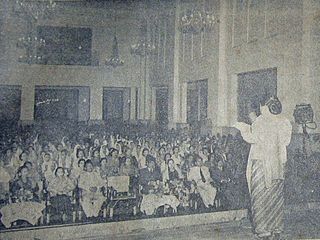
Gerwani was a women's organization founded as Gerwis in Semarang, Central Java, on 4 June 1950.
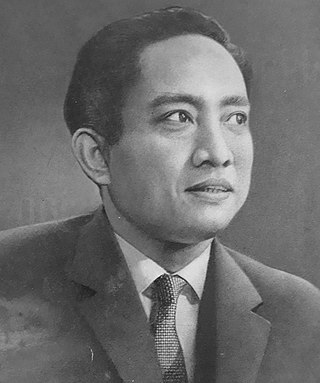
Dipa Nusantara Aidit was an Indonesian communist politician, who served as General Secretary of the Communist Party of Indonesia (PKI) from 1951 until his summary execution during the mass killings of 1965–66. Born on Belitung Island, he was nicknamed "Amat".

Munawar Musso was a leader of the Communist Party of Indonesia and one of the key figures in the 1948 Madiun affair.

Major General (Ret) Basuki Rahmat was an Indonesian general, National Hero and a witness to the signing of the Supersemar document transferring power from President Sukarno to General Suharto.
Lukman Njoto or Njoto was a senior national leader of the Communist Party of Indonesia (PKI), who joined the party shortly after the country's declaration of independence, and was killed following the 1965 coup attempt.

The Acoma Party was a communist party in Indonesia. It evolved out of the Young Communist Force. Acoma was converted into Partai Acoma on 8 August 1952. Acoma/Partai Acoma was led by Ibnu Parna.
The Communist Party of Indonesia (Red) (Indonesian: Partai Komunis Indonesia (Merah), PKI Merah) was a political party in Indonesia. It was formed through a split away from the main Communist Party of Indonesia (PKI) in 1947, as a section of the secondary party leadership broke with PKI. The group included Mohamad Djoni (a demagogue from East Sumatra), Amir Hoesin and L.A. Kasim. On March 8–9, 1947 they founded PKI Merah. At the founding meeting of PKI Merah, Djoni was elected chairman, Hoesin party secretary and Kasim treasurer of the party. The split in the PKI had been provoked by differences of opinion on Sardjono's leadership in the party, rather than polemics on theory. Djono had revolted against Sardjono's openness towards the possibility of entering into negotiations with the Netherlands, a position which Djono saw as a deviation from the revolutionary path.
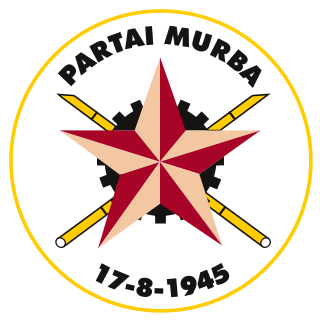
Murba Party was a 'national communist' political party in Indonesia. The party was founded by Tan Malaka, Chairul Saleh, Sukarni and Adam Malik in 1948. The history of the party was largely intertwined with that of the powerful Communist Party of Indonesia (PKI). Initially relations between PKI and the Murba Party were fluid, but gradually the two parties developed into each other's arch-enemies. The Murba Party continued to exist under the New Order, but was merged into the Indonesian Democratic Party in 1973.
The All-Indonesian Federation of Workers'Organisations was the largest trade union federation in Indonesia. Founded during the period of the country's independence in the late 1940s, the federation grew rapidly in the 1950s. Initially formed with loose connections to the Communist Party of Indonesia (PKI) and with members from other parties, over time the PKI became dominant in the organisation. With the introduction of President Sukaro's guided democracy in the late 1950s, SOBSI was formally recognised and given a place in the national decision-making structures. In the 1960s, SOBSI came into conflict with the Army, whose officers controlled the country's state enterprises. Following the 1965 coup that subsequently produced Suharto's New Order regime, SOBSI was declared illegal, its members killed and imprisoned and most of the leadership executed.
Fadjar Harapan was a short-lived Indonesian pioneer organization, linked to the Communist Party of Indonesia (PKI). Fadjar Harapan was founded in 1959, albeit that there already was an existing Scouting movement initiated by the Communist Party. However, the organization was officially not connected to any political party and was open to all children between the ages of six and thirteen. The initiative to found the new organization was taken by the party leader Aidit. Cadres of the Communist Party and Pemuda Rakjat were given the task to study how pioneer movements functioned in other countries, but adapting Fadjar Harapan to Indonesian conditions.
Harian Rakjat was an Indonesian newspaper published by the Communist Party of Indonesia (PKI) from 1951 to 1965. The Harian Rakjat motto was "Untuk rakjat hanya ada satu harian, Harian Rakjat!". Harian Rakyat was managed by Njoto as a member of the editorial board and Mula Naibaho as editor in chief.

Wikana was an Indonesian minister and independence leader. He was one of the youths who forced Sukarno and Hatta to declare independence immediately after the surrender of the Japanese. He was the first Indonesian Minister of Youth and Sport. He was a member of the Indonesian Communist Party. Sometime after the 1965 coup d'état attempt, he was arrested and went missing, it is supposed that he was one of the assassinated in the Indonesian mass killings of 1965–66.
Oloan Hutapea, also known as B. O. Hutapea, was a high-ranking member of the Indonesian Communist Party and one of its major theoreticians during the height of its power, and was leader of a clandestine wing of the party in 1967-8 during the Transition to the New Order.
Asmu, whose birth name was Asmoe Tjiptodarsono, was a leader, theoretician, and chief agricultural expert of the Indonesian Communist Party (PKI) and head of the Communist-affiliated Peasants Front of Indonesia in the mid-1960s. He was killed during the Indonesian mass killings of 1965–66.
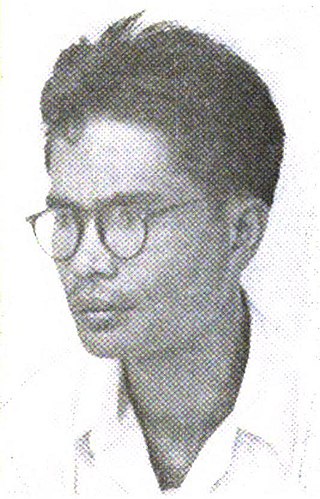
Peris Pardede (1918–1982) was an Indonesian politician who was a key figure in the Communist Party of Indonesia during the Sukarno era. He held various roles, including editor of the party magazine Bintang Merah, representative of the party in the Provisional House of Representatives and the House of Representatives throughout the 1950s and early 1960s, and Politburo candidate in 1965. After the party was banned in 1965, he was put on trial and spent his final decades as a political prisoner of the Suharto regime.